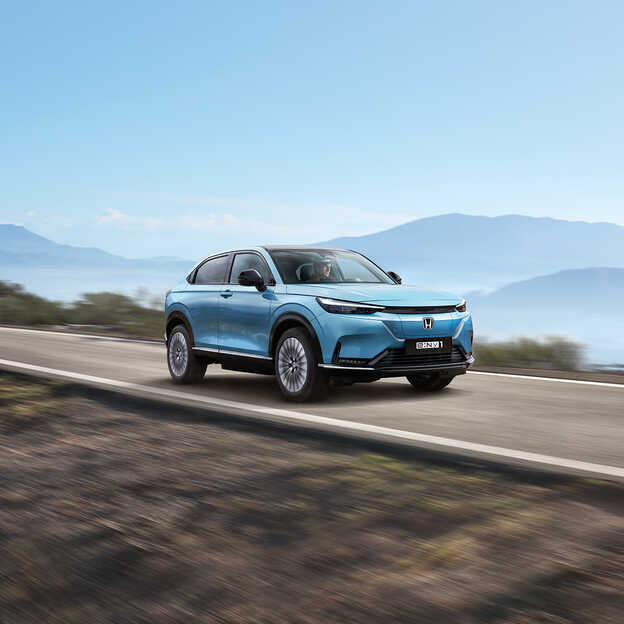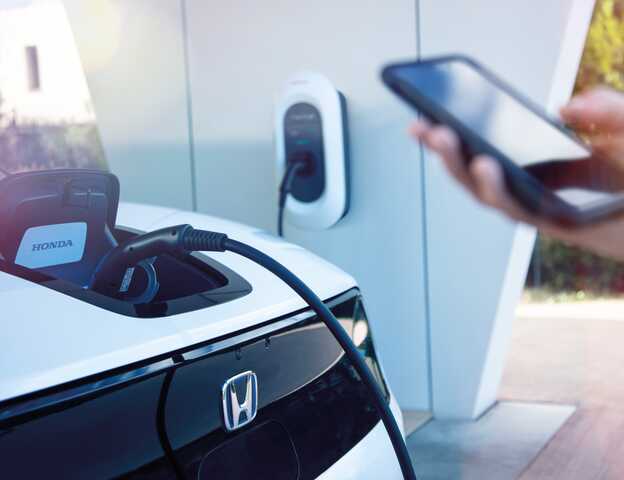Electric Car Charging
As an EV owner or potential buyer, understanding where to charge your electric car, how much it will cost, and how long it takes is important.
In this guide, we'll provide practical tips and insights on the best charging options available for EVs across Europe, helping you make informed decisions and enhancing your buying experience.
How to charge an electric car?
Charging an electric car is usually straightforward. That said, if you’re doing it for the first time, here’s a handy quick guide to help get you up to speed:
1. Set up the charging port: Use the charging cable that comes with your car, or the one provided at the charging station.
2. Start charging: Follow the station’s prompts to begin charging, which may involve authentication via an app or fob.
3. Unplug when done: Once charged, unplug and store the cable properly.
What are the different types of charging connectors?
Type 1
3.7kW – 7kW
Safety latch
Slowest charging
Type 2
7kw – 22kW
Standard EU connector
Widely used
CCS
Up to 350kW
Supports ultra-rapid charging
Enhanced power capacity
What charger do Honda electric cars use?
The Honda e:Ny1 is equipped with a CCS Combo Type 2 charging port at the front. This port includes:
- A Type 2 socket for AC charging at home (up to 22 kW, 11 kW from a domestic supply) or at public stations.
- A CCS socket for DC rapid charging at public stations.

Where can you charge an electric car?

At home
Around 85% of EV charging takes place at home, which is often the most convenient and potentially cost-effective option, depending on your electricity tariff. Installing a home charge point (or wall box) with power starting at 7.4kW is the best way to ensure faster and more efficient charging. Some new homes even come with built-in charge points.
In public
Public charging stations are similar to petrol stations, where you pay to charge your car from a provider. Europe has over 500,000 public EV charging points, with plans to expand to 3.5 million by 2030. Many public places, like supermarkets and workplaces, offer EV charging bays, making it easier to charge on the go.

How long does it take to charge an electric car?
Charging times for electric cars vary depending on the method you use. Charging an electric car can be more convenient than expected, particularly with rapid or home charging options. However, charging times can vary depending on the method you use.
Between 20-60 Minutes
With DC Fast Charging at public stations, you can charge your electric vehicle to 80% in between 20-60 minutes. Most EVs are capable of this form of charging and it can be ideal for quick top-ups during long trips or when you need a rapid recharge on the go.
Between 4-8 Hours
Using Level 2 charging (240V AC) at home or work, you can fully charge an electric vehicle in 4-8 hours. This is convenient for overnight charging or during the day while at work.
Between 12-24 Hours
With Level 1 charging (120V AC) at home, typically with a standard wall outlet, it takes 12-24 hours to fully charge an electric vehicle. This slower rate is best suited for overnight charging.
Why does the charging time vary?
- Battery size
- Battery charge
- The capped charging rate of vehicle
- The capped charging rate of charge point
- Temperature

Charging FAQs
Can I charge an EV from a normal plug?
Yes, you can charge an EV from a normal wall socket. On average, you can expect a 3-pin plug in the UK to draw power at 1-2kW. By comparison, a standard home charger is 7kW.
What’s the difference between tethered and untethered cables?
Tethered or untethered refers to the way the cable is fixed. Tethered chargers have a cable that can’t be unattached from the charging point, whereas untethered chargers are detachable and can be carried with you.
How fast is a Level 3 charger?
Also known as a DC fast charger, the speed of a Level 3 charger depends on how much power your EV can draw, and how much the station can give. For example, a 68.8 kWh Honda e:Ny1 could charge in about 1.7 hours with a 50kW charger. An EV’s onboard charger has a finite recharging speed.
What is the cheapest way to charge an electric car?
Some workplaces offer their employees free electric car charging. However, if you don’t have that facility, charging overnight at home can be a cost-effective option, especially with an off-peak electricity tariff.
How much does EV charging cost per charge?
To calculate the cost of charging your electric car, use this formula:
Charge cost (£) = battery energy added (kWh) × electricity cost (p/kWh).
For example, if you add 50 kWh of energy to your car's battery and the cost of electricity is 20 pence per kWh, the total cost would be £10 (50 kWh × £0.20).
Related reading
Honda Electric Range Overview.jpg/_jcr_content/renditions/c2_r.jpg)
29.11.23
How Do Electric Cars Work?
.jpg/_jcr_content/renditions/c2_r.jpg)
29.11.23
How Do Electric Cars Work?

28.11.23
What are the advantages of electric cars?

28.11.23
Advantages and Disadvantages of Electric Cars
.jpg/_jcr_content/renditions/c2_r.jpg)
17.03.23
Are all Electric Cars Automatic?

23.02.23
Can I charge my Electric Car at home?



